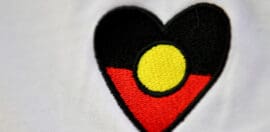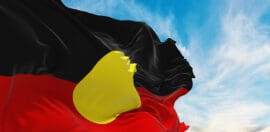Advocates fear Indigenous kids are losing connections to their culture

21 October 2020 at 5:25 pm
Aboriginal and Torres Strait Islander children are around 9.7 times more likely to be in out-of-home care than non-Indigenous kids
Indigenous groups are concerned by new research that shows an increasing number of Aboriginal and Torres Strait Islander children in out-of-home care are being placed away from Aboriginal and Torres Strait Islander families and carers.
A report from the Australian Institute of Health and Welfare (AIHW) found the rate of Indigenous kids in out-of-home care (OOHC) living with Aboriginal and Torres Strait Islander carers has fallen over the past two years, from 47.9 per cent to 43.4 per cent.
The overall number of Indigenous children in OOHC has increased from 15,500 to 18,000, while the OOHC rate per 1,000 Indigenous children has also risen from 48 to 54.
SNAICC – National Voice for our Children CEO Richard Weston said this was a major concern.
“It is worrying that more than half of Aboriginal and Torres Strait Islander children are living without an Aboriginal and Torres Strait Islander carer,” Weston said.
“These children are at high risk of losing connections to culture, family and community that are vital to their safety and wellbeing.”
The AIHW report measures progress towards applying the Aboriginal and Torres Strait Islander Child Placement Principle – which pledges to embed the value of culture to the safety and wellbeing of Indigenous children in policy and practice.
The principle has five elements: prevention, partnership, participation, placement and connection.
SNAICC has long called for improved reporting and measurement of applying this principle, and said in a statement that the report highlights many gaps that need to be urgently addressed.
The organisation noted the AIHW only reported against two elements of the principle, “placement” and “connection”, while not accounting for all Indigenous children who were removed by child protection authorities and lived away from their families.
The new National Closing the Gap Agreement aims to reduce the over-representation of Aboriginal and Torres Strait Islander children in OOHC by 45 per cent by 2031.
Aboriginal and Torres Strait Islander children are around 9.7 times more likely to be in OOHC than non-Indigenous kids.
Weston said Indigenous children were “not just numbers to be wiped off government books”.
“We hope with the new Closing the Gap agreement, we can work with governments to ensure investment in prevention and early intervention is prioritised to support our children and families,” he said.
“We must increase our efforts to safely reunify children to their parents, otherwise the new Closing the Gap target could move quickly out of reach.”
The report found that 19 per cent of Indigenous children in OOHC during 2018-19 were reunified with their families.
This rate sits at 26 per cent for non-Indigenous children.
AIHW spokesperson Louise York said the vast majority of reunified Indigenous children stayed out of OOHC.
“Of the 820 Aboriginal and Torres Strait Islander children aged 0-16 who were reunified with family during 2017-18, 82 per cent did not return to out-of-home care in the following 12 months,” York said.
The full report can be seen here.







